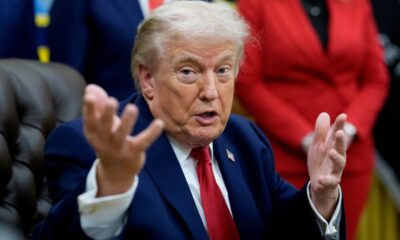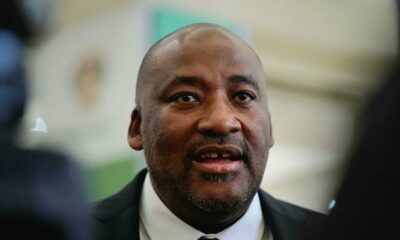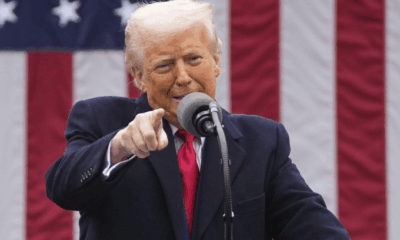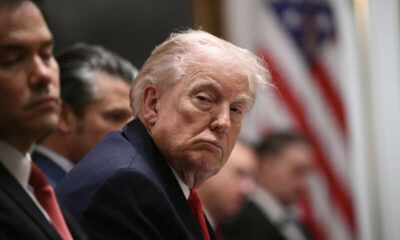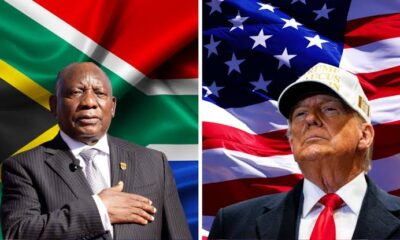News
How Domestic Politics Is Driving Trump’s Hardline Turn On Nigeria
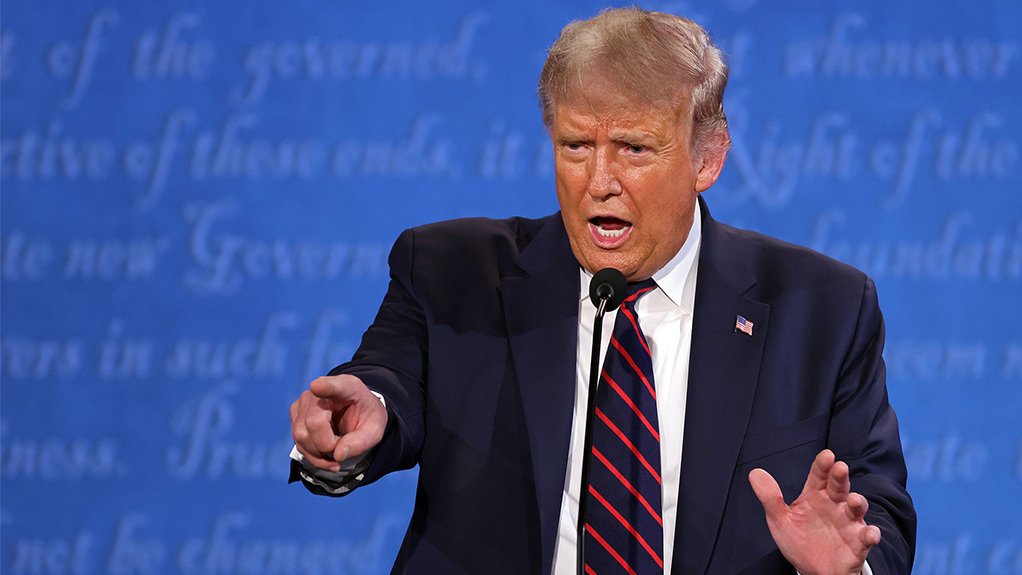
Trump’s Africa Policy Turns Personal Again
It seems Africa is once again caught in the crossfire of U.S. domestic politics. After pressuring South Africa earlier this year, Donald Trump has now turned his attention to Nigeria, threatening not just sanctions but military action all while claiming to defend religious freedom.
Last week, Trump announced plans to add Nigeria to a U.S. blacklist over alleged persecution of Christians, a move cheered by his evangelical supporters. But it’s his follow-up threat of military intervention that has sparked global outrage and confusion. For Africa’s most populous nation, the message from Washington is clear: America’s internal politics are once again shaping its external policy.
Evangelicals, Politics, And The “Persecuted Christians” Narrative
At the heart of Trump’s Nigeria outburst lies a familiar driver the evangelical right. His base has long lobbied for the U.S. to punish countries they believe mistreat Christians. Nigeria, where clashes between Christian farmers and Muslim herders often turn deadly, has become a lightning rod for these campaigns.
But experts say the issue is far more complex. The violence in Nigeria’s Middle Belt is rooted in dwindling land and water resources, not religion alone. “They’re applying a kind of parochial worldview,” said former National Security Council official Cameron Hunter. “It just so happens the wheel landed on Nigeria.”
Even some U.S. lawmakers have voiced alarm. Democratic Representatives Gregory Meeks and Sara Jacobs called Trump’s threats “reckless” and warned that “defending Christians” through military intervention could drag America into another conflict built on misinformation.
A Risky Diplomatic Gamble
For Nigerian President Bola Tinubu, the stakes couldn’t be higher. After South Africa’s Cyril Ramaphosa’s ill-fated White House visit where Trump confronted him with conspiracy videos of a supposed “genocide” against white farmers Tinubu is reportedly cautious about facing the same humiliation.
Policy analyst Pauline Bax from the International Crisis Group warns that Trump’s worldview is heavily influenced by fringe narratives. “There’s a surge of Christian nationalism in the U.S., partly fueled by the Trump administration. Conflicts in Africa risk being interpreted through that lens,” she said.
Still, some argue Nigeria could turn the situation to its advantage. By engaging Washington on security cooperation rather than confrontation, Tinubu might secure more U.S. military support in its fight against Boko Haram and other extremist groups. The U.S. recently approved a $346 million arms sale to Nigeria, signaling a complicated mix of tension and opportunity.
Social Media And Public Reaction
Across X, reactions have been swift and divided. Some American evangelicals applauded Trump for “standing up for Christians in Africa,” while others accused him of playing politics with religion. Nigerian users, meanwhile, mocked the U.S. leader’s comments, with one viral post reading: “Trump can’t even fix Chicago, but wants to fix Nigeria?”
Many analysts note that Trump’s rhetoric often serves his campaign trail rather than foreign diplomacy. By appealing to his loyal Christian base, he’s tapping into a domestic narrative that frames the world in moral absolutes good versus evil, Christian versus other.
A Familiar Pattern
This isn’t the first time Trump’s Africa policy has been shaped by U.S. culture wars. In his first term, he showed little interest in visiting the continent but frequently used African conflicts to bolster his image as a “defender of faith.” His fixation on religious identity over political complexity risks alienating key African partners and undermining America’s credibility on the continent.
For Nigeria, the challenge is balancing pragmatism with pride. Tinubu may have to navigate Trump’s unpredictable temper while keeping Nigeria’s sovereignty and dignity intact. As one Nigerian commentator put it, “When America sneezes, Africa catches the cold but this time, we might need a mask.”
{Source:EWN}
Follow Joburg ETC on Facebook, Twitter , TikTok and Instagram
For more News in Johannesburg, visit joburgetc.com

